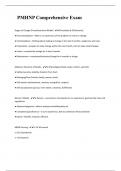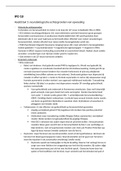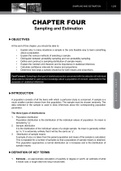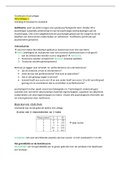Examen
PMHNP Comprehensive Exam
- Grado
- Institución
Stages of Change (Transtheoretical Model) - (Prochaska & DiClemente) ● Precontemplation—little to no awareness of the problem or intent to change ● Contemplation—thinking about making a change in the next 6 months, weigh pros and cons ● Preparation—prepare to make change within the n...
[Mostrar más]






